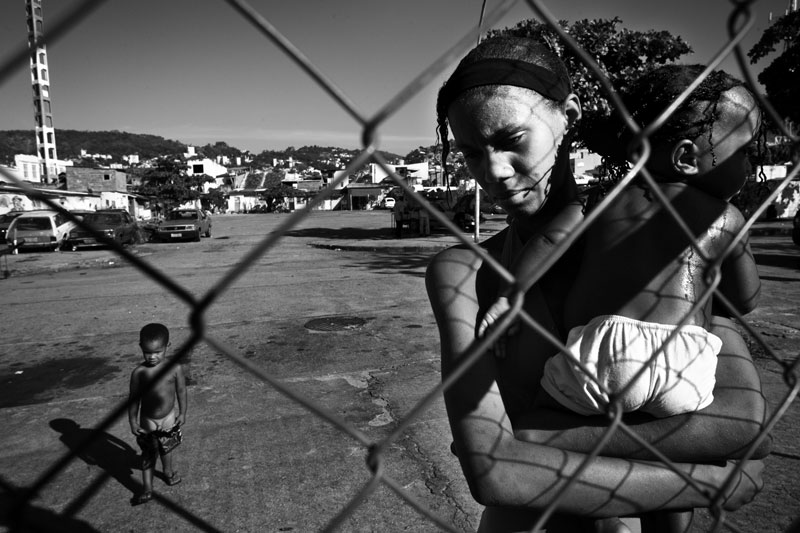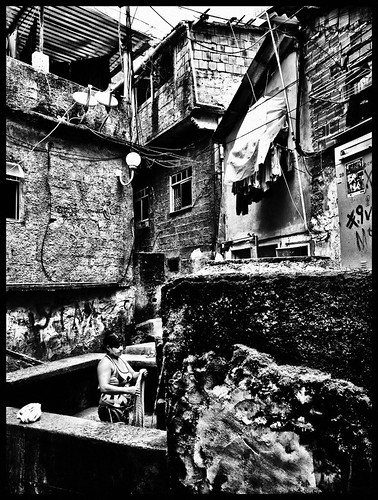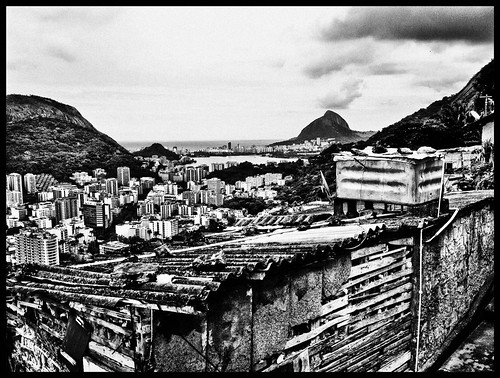
"Facing Water Crisis - Rio Favelas," by Balazs Gardi (Please, visit facingwatercrisis.org for more information)--The rapid and chaotic urbanization process in Brazil leads to uncontrolled metropolitan growth and many consequent problems in huge cities like Rio de Janeiro. The lack of housing, safe water and sanitation networks are only few of them.
The first favela, or illegally built settlement on squatted land, appeared on the outskirts of Rio approximately a hundred years ago.
Currently about a fifth of the city’s residents live in such slums, despite the fact that official attempts to eradicate these often lawless shantytowns have multiplied. However, most of Rio's favelas have been increasingly troubled by drug-related crime and gang warfare. Some drug lords have become de facto rulers in the favelas and have established a strict regime, trying to manage minimal public services, yet defended by guns and generally resisting any outside influence.
Since most buildings in the favelas were built without proper planning and authorization, the sewage and water pipes were also mostly laid and are still maintained in an improvised manner. The socially outcast people of the favelas are still forced to solve many of their own infrastructure problems. The natural water flow of the mountains is collected and stored in smaller self-built reservoirs from which fuzzy batches of plastic pipes run down in every direction. Even today, sewage still flows through the settlements into open streams, while the collection of municipal waste is practically unheard of in most areas. Thus the conditions for a hygienic urban lifestyle are lacking, and rats scurry around the streets and houses signifying imminent public health hazards.

Although President Luiz Inácio Lula da Silva said that investing in running water and other basic services was the best way to beat organized crime, it is not yet clear if this is a real commitment that will end the previous political stagnation on the issue. The 2014 FIFA World Cup across Brazil and the 2016 Olympic Games in Rio, coupled with the increased media attention, seem likely to motivate a new development policy and major spending in public services and infrastructure. But it will require immense efforts to change the poor living conditions of millions of people.



No comments:
Post a Comment